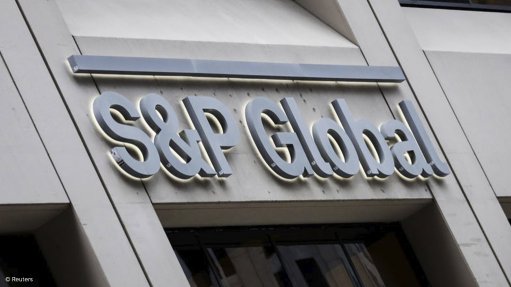Plastics Pact members report progress in driving a circular plastics economy
Plastic industry recycling organisation the South African (SA) Plastics Pact highlights in its latest annual report that significant progress has been made by the 27 SA Plastics Pact members towards a circular economy for plastic packaging since the publication of the 2020 baseline report.
SA Plastics Pact members have continued to demonstrate commitment and leadership in the pursuit of a circular economy for plastic packaging in the country, through incremental progress towards the four ambitious targets set for the end of this year.
The latest report, which analyses the most recent member data from 2023, demonstrates continued progress by the business members towards the targets with a number of notable achievements, the organisation says.
Additionally, year-on-year, the quality and quantity of data received from members has improved, which allows for an ever-clearer view on the state of the plastic packaging industry in the country.
“There were significant improvements in member participation in the most recent report, with 80% of brand owners and retailers reporting on their 2023 packaging portfolio data. This marks a substantial increase from previous years, demonstrating an ongoing commitment to transparency and collaboration," says SA Plastics Pact secretariat and green economy nonprofit company GreenCape Circular Economy expert analyst Roan Snyman.
“With each passing year, we have made improvements in the quality and type of data received, thereby helping us to have an increasingly more informed view of the overall state of the plastic packaging economy in South Africa.”
PLASTIC TARGETS
The first target that members of the Pact must meet is taking action on a list of 12 plastic packaging items that have been listed as problematic or unnecessary and which must be phased out of circulation.
Members have reported a 91% reduction in the distribution of plastic straws, a 78% reduction in the distribution of plastic cutlery, a 41% reduction in the distribution of thin barrier bags and a 59% reduction in the distribution of rigid polyvinyl chloride packaging, the report shows.
The second target aims to ensure that 100% of plastic packaging entering the market from Pact members is reusable, recyclable or compostable.
The report shows that 81% recyclability has been achieved, up from 73% as reported in the baseline report. Members that joined the Pact after the baseline report was compiled have demonstrated similar progress, albeit from a more delayed start, the Pact states.
Additionally, members have reduced the use of multilayer multipolymer packaging by 3 000 t from the baseline report, while increasing the use of recyclable polyethylene terephthalate (PET) by 11 000 t.
Against the third target, which aims to ensure a 70% recycling rate to improve the collection of recyclable plastics, there was an increase of 18% of the recycling rate for all plastic materials in South Africa.
Further, the fourth target aims to ensure the inclusion of a minimum 30% of recycled content in new plastic packaging and thereby ensuring demand for recyclate.
Founding Pact members report 24% inclusion of recycled content in new packaging, which is a 5% increase from the baseline report.
Additionally, more than 11 000 t of recycled content has been included in PET since 2020.
“The 2023 Annual Report showcases the collective efforts of our members who are committed to transforming the plastics packaging sector,” said food and beverage company PepsiCo South Africa public policy and government affairs manager and SA Plastics Pact Steering Committee chairperson Blain van Wyk.
“We are making significant progress towards a circular economy for plastic packaging, but we must continue to collaborate, innovate, and hold ourselves accountable to the ambitious targets we’ve set for 2025,” he says.
The SA Plastics Pact must focus its efforts on the actions that can lead to the greatest impact. There is no one-size-fits-all solution, and no single organisation can tackle this challenge in isolation. It requires the active collaboration of influential and ambitious organisations across the entire value chain, he adds.
“This collaboration allows us to work collectively to generate momentum, and take the steps that will, over time, shift the system towards one where companies use circular packaging for their products, where regulations and policies unlock the barriers to progress, and where consumers are empowered to make circular choices.”
Article Enquiry
Email Article
Save Article
Feedback
To advertise email advertising@creamermedia.co.za or click here
Press Office
Announcements
What's On
Subscribe to improve your user experience...
Option 1 (equivalent of R125 a month):
Receive a weekly copy of Creamer Media's Engineering News & Mining Weekly magazine
(print copy for those in South Africa and e-magazine for those outside of South Africa)
Receive daily email newsletters
Access to full search results
Access archive of magazine back copies
Access to Projects in Progress
Access to ONE Research Report of your choice in PDF format
Option 2 (equivalent of R375 a month):
All benefits from Option 1
PLUS
Access to Creamer Media's Research Channel Africa for ALL Research Reports, in PDF format, on various industrial and mining sectors
including Electricity; Water; Energy Transition; Hydrogen; Roads, Rail and Ports; Coal; Gold; Platinum; Battery Metals; etc.
Already a subscriber?
Forgotten your password?
Receive weekly copy of Creamer Media's Engineering News & Mining Weekly magazine (print copy for those in South Africa and e-magazine for those outside of South Africa)
➕
Recieve daily email newsletters
➕
Access to full search results
➕
Access archive of magazine back copies
➕
Access to Projects in Progress
➕
Access to ONE Research Report of your choice in PDF format
RESEARCH CHANNEL AFRICA
R4500 (equivalent of R375 a month)
SUBSCRIBEAll benefits from Option 1
➕
Access to Creamer Media's Research Channel Africa for ALL Research Reports on various industrial and mining sectors, in PDF format, including on:
Electricity
➕
Water
➕
Energy Transition
➕
Hydrogen
➕
Roads, Rail and Ports
➕
Coal
➕
Gold
➕
Platinum
➕
Battery Metals
➕
etc.
Receive all benefits from Option 1 or Option 2 delivered to numerous people at your company
➕
Multiple User names and Passwords for simultaneous log-ins
➕
Intranet integration access to all in your organisation


















